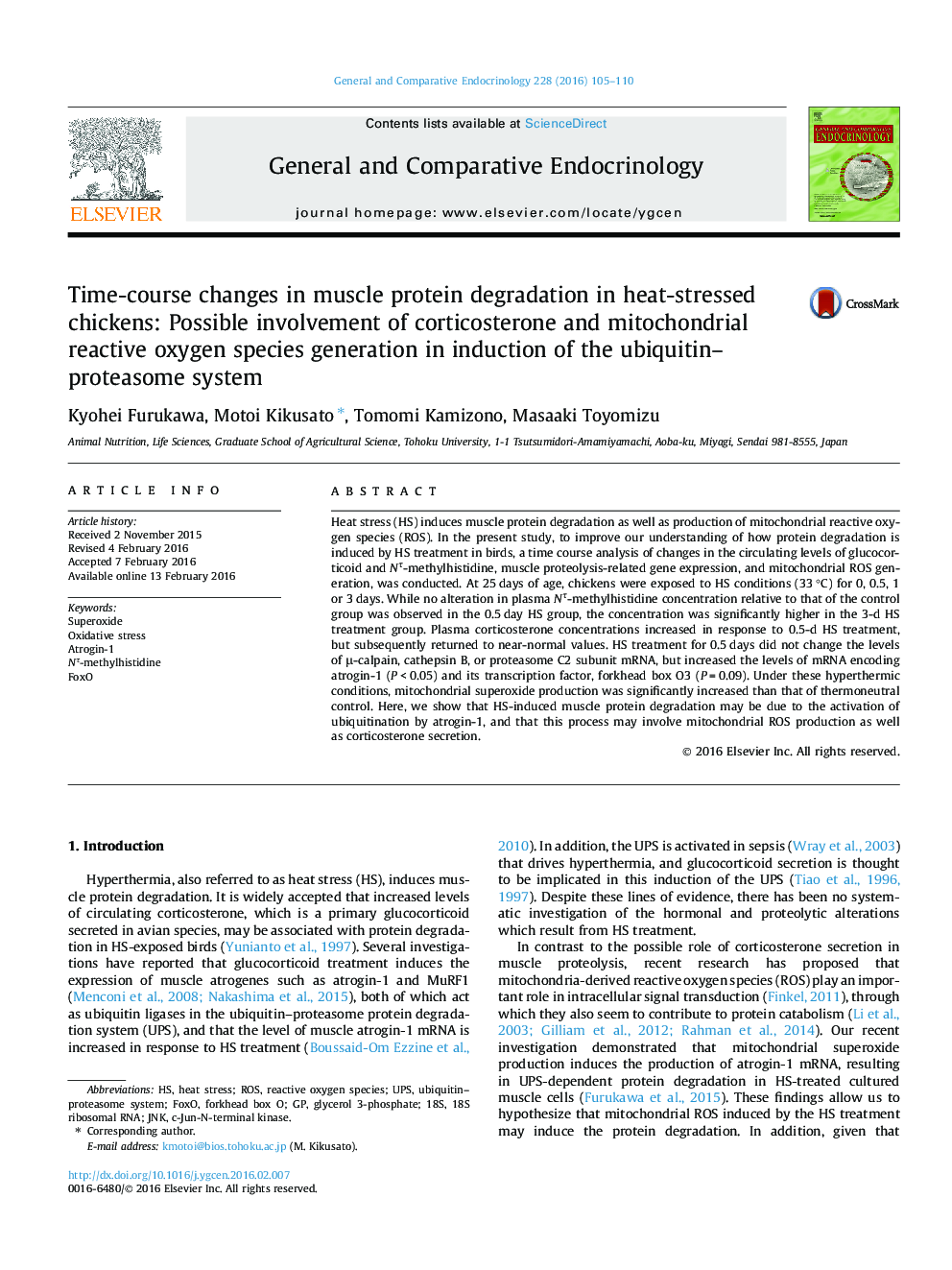| Article ID | Journal | Published Year | Pages | File Type |
|---|---|---|---|---|
| 2799815 | General and Comparative Endocrinology | 2016 | 6 Pages |
•HS treatment induces transient increase in corticosterone secretion in birds.•HS treatment induces atrogin-1 mRNA levels in avian skeletal muscle.•HS treatment induces mitochondrial ROS production in avian skeletal muscle.•Corticosterone, atrogin-1 and mitochondrial ROS increased at the same time point.
Heat stress (HS) induces muscle protein degradation as well as production of mitochondrial reactive oxygen species (ROS). In the present study, to improve our understanding of how protein degradation is induced by HS treatment in birds, a time course analysis of changes in the circulating levels of glucocorticoid and Nτ-methylhistidine, muscle proteolysis-related gene expression, and mitochondrial ROS generation, was conducted. At 25 days of age, chickens were exposed to HS conditions (33 °C) for 0, 0.5, 1 or 3 days. While no alteration in plasma Nτ-methylhistidine concentration relative to that of the control group was observed in the 0.5 day HS group, the concentration was significantly higher in the 3-d HS treatment group. Plasma corticosterone concentrations increased in response to 0.5-d HS treatment, but subsequently returned to near-normal values. HS treatment for 0.5 days did not change the levels of μ-calpain, cathepsin B, or proteasome C2 subunit mRNA, but increased the levels of mRNA encoding atrogin-1 (P < 0.05) and its transcription factor, forkhead box O3 (P = 0.09). Under these hyperthermic conditions, mitochondrial superoxide production was significantly increased than that of thermoneutral control. Here, we show that HS-induced muscle protein degradation may be due to the activation of ubiquitination by atrogin-1, and that this process may involve mitochondrial ROS production as well as corticosterone secretion.
